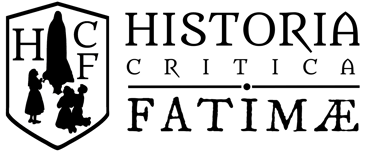Frequently Asked Questions
1. Is the Corpus Historicum Fatimae Criticum a religious, academic, or scientific project?
2. Who directs the project?
3. How is the project founded?
4. What is the difference with the official Sanctuary and contemporary academic approaches?
5. When will the first volumes be published?
6. How to access the publications?
7. Are religious and academic collaborations accepted?
8. Is the project related to any university or ecclesiastical institution?
9. What makes this project unique?
10. How can I support the project?
11. Why independence is esential?
12. Who can participate or contribute?
13. Vision and legacy
In principle, the events of Fátima occurred within a Catholic religious context, and thus everything related to Fátima cannot be separated from the Catholic religious sense that constitutes its essence.
However, the Corpus Historicum Fatimae Criticum is a scientific and historical research project, grounded in the classical historical-critical method.
It is not a devotional project, although its content does not exclude it from being useful to devotion itself.
The Corpus is also not an academic project in the institutional sense: it is independent from contemporary academic frameworks, which often lack rigor.
The mission of the Corpus is to reconstruct the events of Fátima through the application of the scientific rigor of the classical historical-critical method, with an approach based on documentary sources and profound historiographical analysis.
In other words, the Corpus Historicum Fatimae Criticum is defined by its independence and by its strict adherence to the canons of classical historical scholarly criticism, a method largely abandoned by contemporary historical approaches that question the very concept of historical truth and replace it with the subjective perspective of the author (the author's t1.ruth).
1. Is the Corpus Historicum Fatimae Criticum a religious, academic, or scientific project?
The Corpus Historicum Fatimae Criticum is entirely directed by its founder, Dr. Álvaro Albornoz Castro, a historian specializing in the historical and critical study of the Fátima Apparitions, trained at Babeș-Bolyai University (Romania). His authority on the subject is evidenced by his 1,100-page doctoral thesis, defended on September 20, 2024, titled Critical Biography of Sister Lúcia de Jesus Rosa dos Santos in Light of Her Correspondence (1921–1957)—a foundational work of critical-positivist history in the classical tradition, awarded Magna cum Laude. As a direct result of this monumental research, Dr. Albornoz Castro has assembled a private specialized library of unique scope on Fátima, the Bibliotheca Fatimologica—a collection that, owing to its exhaustiveness and systematic nature, stands as one of the most complete of its kind on a global scale.
2. Who directs the project?
3. How is the project funded?
The Corpus Historicum Fatimae Criticum is sustained through its own resources and the support of private patrons who share its mission of preserving the historical truth about Fátima with independence and scholarly rigor.
This financial independence ensures the full scholarly and editorial autonomy of the Corpus.
To guarantee the continuation of research and publication, several initiatives have been established, including subscriptions to the bimonthly monograph-journal Studia Critica Fatimae and the sale of related historical-artistic projects, such as the historical reconstruction of the 1947 Sister Lúcia–Thomas McGlynn statue — the only sculptural representation personally supervised by a Fátima seer.
Each limited edition of this unique statue, crafted with noble materials, serves as both a work of devotional art and a tangible support for the project’s long-term sustainability.
Every contribution helps sustain this singular initiative that seeks to preserve and transmit the historical truth of Fátima with independence and scholarly rigor.
The Sanctuary of Fátima fulfills a pastoral function in conformity with the guidelines of the ecclesiastical institution to which it belongs. Although the Sanctuary holds works of significant documentary value, most of them conform to the institutional and contemporary academic limitations and requirements of the present.
Our project distinguishes itself from prevailing methodological trends in disciplines such as history or sociology, which often overlook factual historical objectivity in favor of contemporary subjectivist and relativist approaches, where the notion of the author takes precedence over historical truth.
In contrast to this, the Corpus Historicum Fatimae Criticum is a scholarly initiative of an independent and scientific character, whose purpose is to document and critically analyze the historical sources of Fátima in pursuit of historical truth itself.
The project’s objective is not pastoral or apologetic but scholarly: to document, analyze, and verify the historical record of Fátima as accurately as possible through the critical examination of its sources. In this sense, the Corpus Historicum Fatimae Criticum operates in a domain entirely distinct from that of the Sanctuary — founded not on the transmission of devotion, but on the recovery of historical fact, relying on objective truth as its fundamental principle.
4. What is the difference with the official Sanctuary and contemporary academic approaches?
The editorial project is planned in progressive phases. The first volume, dedicated to the first part of the critical biography of Sister Lúcia, is in preparation and its publication is foreseen for the first stage of the project (2025–2026). The rest of the volumes will be published systematically, and the publication date will be announced in a detailed annual schedule with estimated publication dates based on the project's financial possibilities.
5. When will the first volumes be published?
6. How to access the publications?
The major volumes of the Corpus will be published in print. Its companion bimonthly publication, Studia Critica Fatimae, will initially be released in digital format (PDF), with the potential for a limited print run contingent on subscriber demand. Benefactors and subscribers will receive privileged early access to developing chapters and research materials.
6. How to access the publications?
The major volumes of the Corpus will be published in print. Its companion bimonthly publication, Studia Critica Fatimae, will initially be released in digital format (PDF), with the potential for a limited print run contingent on subscriber demand. Benefactors and subscribers will receive privileged early access to developing chapters and research materials.
Are religious and academic collaborations accepted?
Yes. The Corpus maintains its intellectual and editorial independence to guarantee the unrestricted application of its methodology. It is, however, open to and values collaboration with independent researchers, specialists in theology, Church history, and related domains. All collaboration will be evaluated according to the criteria of scientific quality and critical rigor that define the project’s standards.
Is the project related to any university or ecclesiastical institution?
The Corpus Historicum Fatimae Criticum is an independent project, not officially affiliated with universities or ecclesiastical bodies, relying on the scientific and scholarly expertise of Dr. Albornoz as well as the specialized library (Bibliotheca Fatimologica) that form the substantial base of the Corpus. However, the project does not exclude institutional or religious collaborations that allow for the scholarly independence of the project in conformity with its principles and values.
What makes this project unique?
The Corpus Historicum Fatimae Criticum constitutes the first comprehensive scientific project of its kind devoted to producing a critical history of the events of Fátima. This endeavor, without parallel in current historiography, is directed and developed by a reference authority in the subject, whose specialization, forged over more than seven years of doctoral research, is supported by the possession and management of a private specialized library of monumental scope. This collection, which due to its exhaustiveness and systematicity constitutes the most complete on a worldwide scale in its category and is based on the exhaustive compilation of edited primary and secondary sources, erects the indispensable documentary foundation that endows this unprecedented effort with viability and rigor.
In other words, the Corpus Historicum Fatimae Criticum project is unique because:
It is the first comprehensive scientific project of its kind devoted to the critical history of the Fátima events.
Previous works, although meritorious, belong primarily to devotional, theological, or institutional spheres, and therefore lack the methodological independence necessary for a true historical-critical reconstruction.It applies to Fátima the same methodological rigor employed in classical historiography — the rigorous verification of sources, the evaluation of degrees of certainty, and the systematic documentation of evidence.
It restores to Fátima the dignity of historical inquiry within the field of positive historical science, free from apologetic presuppositions and contemporary relativist approaches that have diluted the notion of historical objectivity.
It creates the first comprehensive bibliographic corpus on Fátima — a monumental archive that collects, organizes, and critically examines all existing literature on the subject, including forgotten or inaccessible materials.
It is entirely independent, both institutionally and economically, ensuring absolute methodological and intellectual freedom in the service of historical truth.
How can I support the project?
There are various ways to support it:
Private donations.
Subscription to the bimonthly journal Studia Critica Fatimae.
Acquisition of the publications in preparation.
Acquisition of one of the copies of the Sister Lúcia-Thomas McGlynn statue.
Participation as a cultural benefactor or institutional sponsor.
Every contribution helps sustain this unique project that seeks to preserve and transmit the historical truth about Fátima with independence and scientific rigor.
11. Why independence is essential
The widespread relativism now dominant in disciplines like history, sociology, and anthropology has effectively become the institutional and scholarly standard for legitimizing knowledge. Within these fields, the very concept of factual historical objectivity has been largely abandoned in favor of subjectivist and postmodern currents that privilege authorial interpretation over verifiable truth. This pattern is equally prevalent in modern ecclesiastical scholarship, including works on Fátima, where a postmodern mindset—prioritizing personal emotion and subjective interpretation, or mere 'opinionism'—frequently overrides objective analysis, coherence, and logic.
In direct opposition to this trend, the Corpus Historicum Fatimae Criticum reaffirms the positivist conviction that the historian's fundamental task is to reconstruct the past as faithfully as possible through the critical verification of sources. This commitment to methodological rigor constitutes the very essence of a scientific approach to history.
12. Who can participate or contribute?
Individuals, institutions, and scholars are invited to contribute in various ways:
Through donations or patronage in support of the research and publication process.
By acquiring limited editions of the Sister Lúcia–McGlynn statue, which directly fund the project.
By collaborating with documents, testimonies, or materials of relevance to the reconstruction of the Fátima events.
Through translation, editing, and peer-review work for future publications of the Corpus and its academic journal, Studia Critica Fatimae.
All contributions will be formally acknowledged in the publications or website of the Corpus, according to the nature of the collaboration.
13. Vision and Legacy
The Corpus Historicum Fatimae Criticum was conceived not merely as a historical research project, but as a long-term scientific enterprise aimed at preserving, organizing, and transmitting the entire historical legacy of Fátima to future generations of researchers and believers alike.
Its ultimate purpose is to bridge faith and history through the rigorous tools of scholarship, ensuring that devotion is illuminated — rather than obscured — by truth.
In this sense, the Corpus aspires to serve both the Church and the international academic community, contributing to the renewal of historical studies in the Catholic field and to the broader dialogue between faith and historical science.
info@historiacritica.com
+ 40 784 812 387
Copyright © 2025. Historia Critica Fatimae - All rights reserved.


CONTACT
SHARE
FOLLOW
